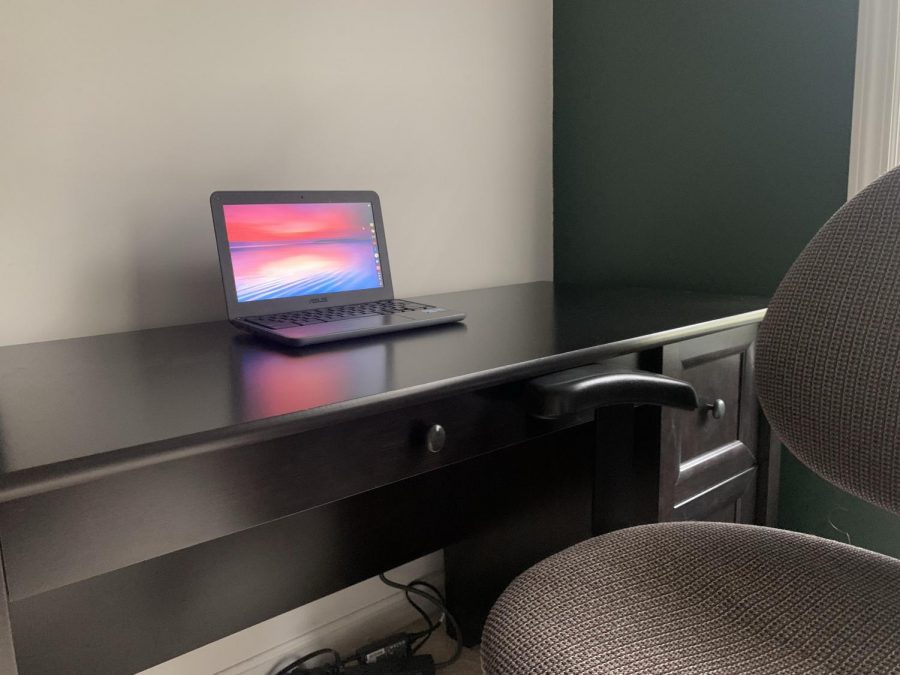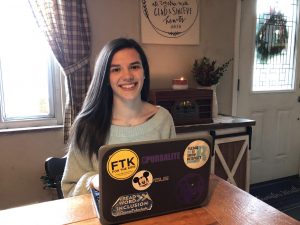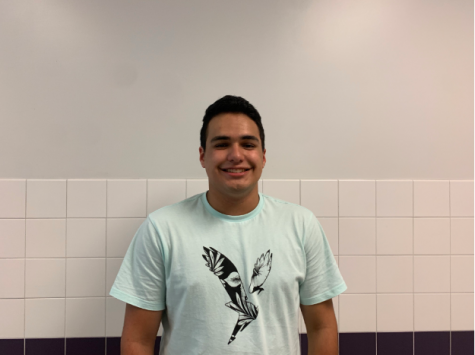Move to all-remote learning draws mixed reactions from students
Many students who were remote learners all year say they look forward to being in school next year.
November 24, 2020
On the first day of Baldwin’s return to full remote education, students expressed emotions ranging from understanding through disappointment with the change.
Superintendent Dr. Randal Lutz sent out an email to parents on Monday afternoon announcing that due to rising COVID-19 cases in the region, the school district would transition to remote learning from today through Dec. 11.
Senior Taylor Mincin has participated in the hybrid schooling model since the beginning of the year. While disappointed with the move to all remote, she said it is no surprise that the district’s buildings were forced to close.
“I think we were all prepared for this and knew it was going to come eventually,” Mincin said. “I feel like it was definitely necessary to have the schools closed after Thanksgiving especially, because of traveling and visiting family members who you are not normally around.”
Senior Sara Banovic agreed.
“I definitely agree with the decision, considering the circumstances of the rise in cases,” Banovic said. “Our health and safety should always come first, and we should take advantage of the resources Baldwin is lucky to have.”
Mincin, however, said that despite increasing cases, she felt safe while in school.
“I personally felt comfortable in school because people were adhering to the mask rules and we weren’t really close to anyone in the classrooms,” Mincin said.
Freshman Kenzie Hirt, meanwhile, said that switching to full remote might not decrease COVID-19 cases.
“I also think it was safer to give students a space to meet together with masks on and social distancing rules in place, because now students will meet in their houses instead and not practice the same precautions,” Hirt said. “Students suddenly being told to stay at home for school won’t help decrease cases by itself. Restaurants, malls, and other non-essential public places need to be closing as well for this to work.”
Junior Meckenna Renwick, a hybrid student, has strong feelings against going all remote.
“I think it’s stressful and it’s harder to handle,” Renwick said. “I see the point of it, but I think they need to figure out whether to keep us all remote or not, as going back and forth is not easily done.”
Senior Julia Wodarek chose the full-remote model when school began this September, so the district’s decision will not mean any changes in her day. But she did say that the closure would provide a good opportunity for students who have been full-remote all year.
“Because everyone is now online, teachers give equal amounts of attention to all students,” she said of the new setup. “When (hybrid) classes were going on, those students (in the classroom) obviously got more attention than the online kids.”
Still, being full-remote all year has worked out for her in general, she said.
“While it has its challenges, I haven’t minded staying home and learning. All of my teachers have been great at speaking to the fully online kids about what we should be doing and how they will help us with our lessons,” Wodarek said.
For hybrid students, going fully remote will require some adjustments. But since everyone had to learn remotely last spring when the pandemic started, Banovic said she feels prepared.
“I have found that an agenda is really important for me to be able to keep up with my classes from home,” Banovic said. “Now that we’re fully online, I am definitely going to be using it a lot, like I did last spring.”
Junior Greta Gorman, who participated in hybrid, noted that she did not see any major differences in being fully remote.
“I’m fine with school switching to all online because the two days a week (in person) was not much of actual school. We were doing the same things that we would’ve been doing online anyways,” Gorman said.
“Also, most of my friends were already remote learners or went to school on Thursdays and Fridays, so it won’t impact seeing them,” she said.
But junior Ella Palatucci, who was also a hybrid student, feels the change will not be easy.
“I’m going to just try my best to stay positive and motivate myself to pay full attention during my online classes,” Palatucci said. She said she finds it difficult to “get all (her) work done without procrastinating” with online learning.
Senior Haley Goldbach, a full remote student who also participates in choir, fears the concert season could be heavily affected by the change.
“Mr. (Kris) Tranter is trying his best to make things work,” Goldbach said. “Right now, at home, we just sing on our own. But it’s better to do it with a group so you know how it should sound.”
For academics, Goldbach said that the key to being organized in online school is to work on time management.
“Everyone is having a hard time trying to do everything all at once,” Goldbach said. “Just remember to breathe and take your time.”
Staff Writers Lena Barakat, Lindsay Bonetti, Ethan Franco, Grace Hampton, Paul Kercher, Brooke Scanlon, Ethan Spozarski, and Isabel Swanson contributed to this report.




